Sr. Bernadette added, “We couldn’t invite anyone in the community. Our visits to schools and parishes in the rural areas where we get most of our vocations were cut short. Our (Aspirants) got tired of waiting for the ‘Come and see’ program in Nairobi and veered off along the way.”
The Delegate Superior of FSP members in Eastern Africa, including Kenya, Uganda, Tanzania, Zambia, Malawi, South Sudan and Zimbabwe told ACI Africa that the formation process for the years 2019, 2020, and 2021 was disrupted owing to the COVID-19 lockdown and that some countries in the region are still struggling to stabilize their numbers.
Sr. Rosemary Mwaiwa said, “The COVID-19 years were very critical for the Daughters of St. Paul. We couldn't share our charism in schools and in parishes and so, our recruitment was badly affected.”
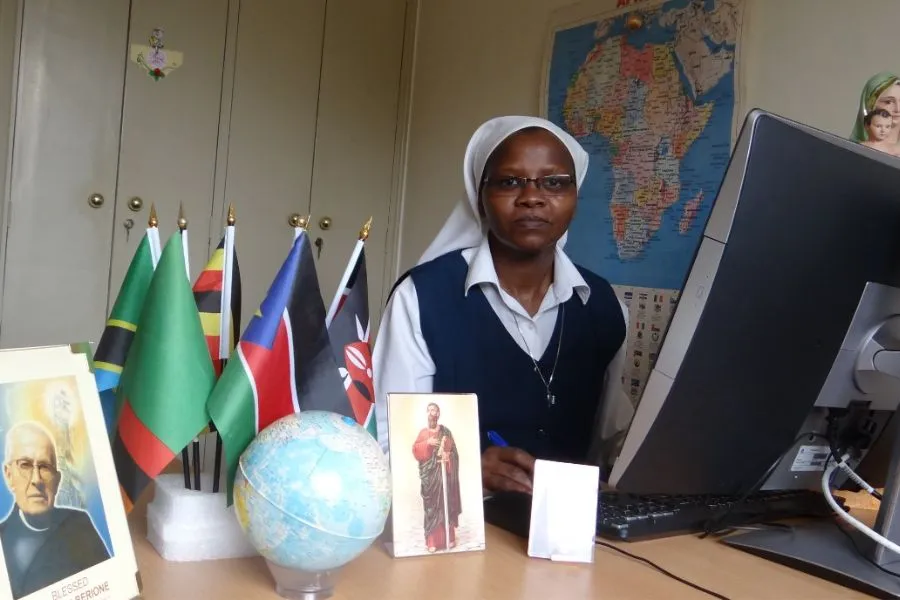 Sr Rosemary Mwaiwa, Nairobi-based FSP Delegate Superior. Credit: Daughters of St. Paul, Nairobi
Sr Rosemary Mwaiwa, Nairobi-based FSP Delegate Superior. Credit: Daughters of St. Paul, Nairobi
The 2020 and 2021 Aspirants in the Congregation could not proceed with their formation, Sr. Rosemary said, adding that the two groups had to be merged when COVID-19 restrictions were relaxed, allowing them to proceed with their pre-postulancy in Kampala.
(Story continues below)
Today, Daughters of St. Paul only have seven pre-postulants in Kampala, including four Kenyans, two Tanzanians, and one Uganda. Also in the Kampala formation house, are five postulants, who include three Ugandans and two Kenyans.
Sr. Rosemary says that many FSP Aspirants who would now be in the pre-postulancy and postulancy groups in Kampala could not endure the long wait owing to the COVID-19 travel restrictions that made it impossible to cross the border to Uganda.
Apart from the huge blow to the recruitment of vocations to Religious Life, the apostolate of the Daughters of St. Paul who engage the communications media to spread the Gospel message that includes the promotion of the dignity of all people was also affected by the COVID-19 outbreak.
“Our book displays were suspended for a very long time. We had to find new ways to cope and adapted to completing our activities online. This is how we birthed online book launches and we have never looked back,” Sr. Rosemary said.
“We grew all our digital platforms during the COVID-19 pandemic,” the Kenyan-born FSP Delegate Superior says, and adds, “We explored multiple creative ways to reach our audiences and started packaging our content in short video clips and other audiovisual tools. And we have continued to grow this opportunity in digital communication.”
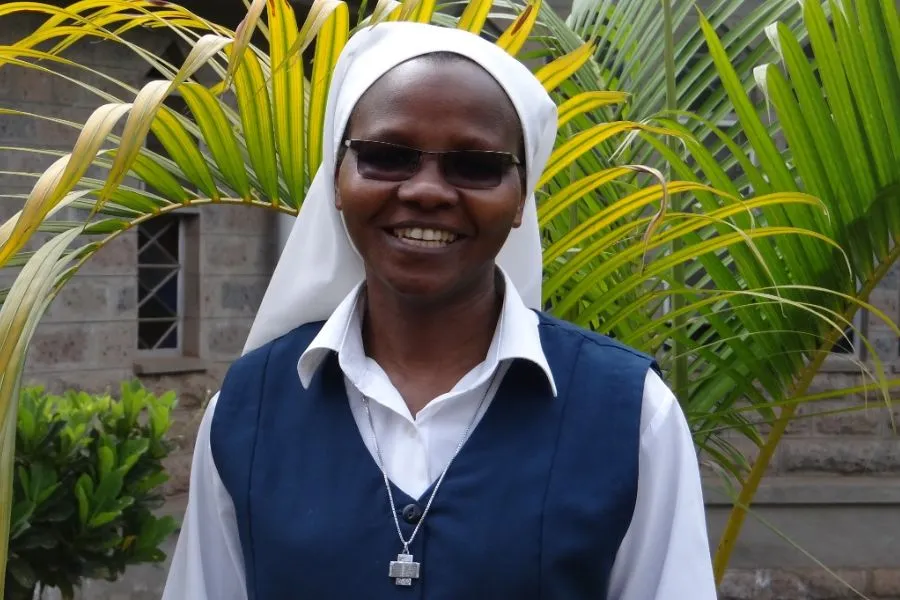 Sr Rosemary Mwaiwa, Nairobi-based FSP Delegate Superior. Credit: Daughters of St. Paul, Nairobi
Sr Rosemary Mwaiwa, Nairobi-based FSP Delegate Superior. Credit: Daughters of St. Paul, Nairobi
To boost recruitment, the international Religious Congregation that Blessed James Alberione founded in Italy in 1915 “is going where the young people are,” Sr. Rosemary told ACI Africa.
“We are finding new channels used by young people and following them there to make known our vocation. We are very active on Facebook, Instagram, TikTok, and other places where the young people are and we get some expressing their interest to join us,” she said.
Because COVID-19 is no longer a threat, FSP members have also gone back to their traditional recruitment channels in schools and parishes, Sr. Rosemary said.
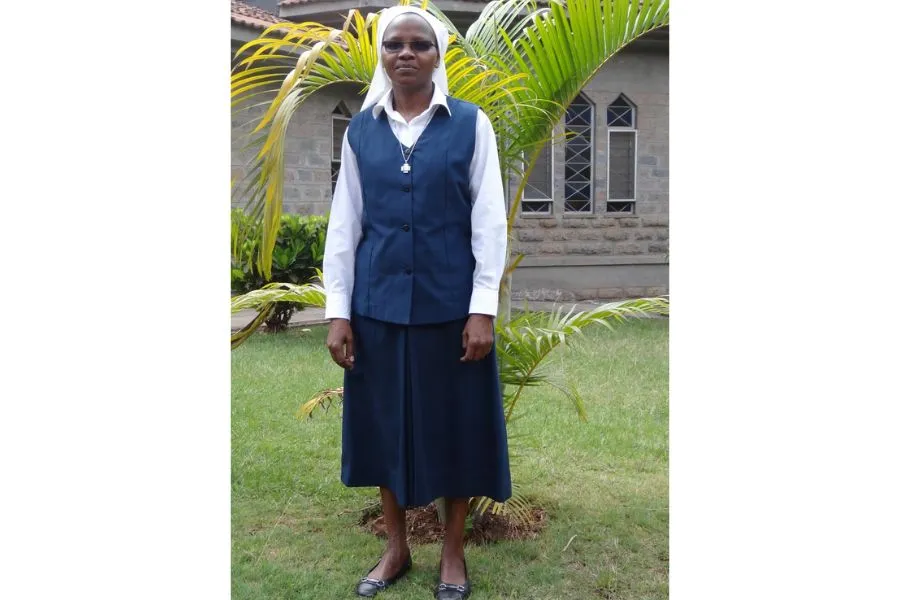 Sr Rosemary Mwaiwa, Nairobi-based FSP Delegate Superior. Credit: Daughters of St. Paul, Nairobi
Sr Rosemary Mwaiwa, Nairobi-based FSP Delegate Superior. Credit: Daughters of St. Paul, Nairobi
“We are also using our witness of life to attract young people in our Congregation. There are those who step into our bookshops, see us, and ask to join us,” she said, echoing FSP members who have described their Catholic Bookshops as their “pulpit”.
All over the region, Daughters of St. Paul are bouncing back from the COVID-19 devastation that threatened their numbers.
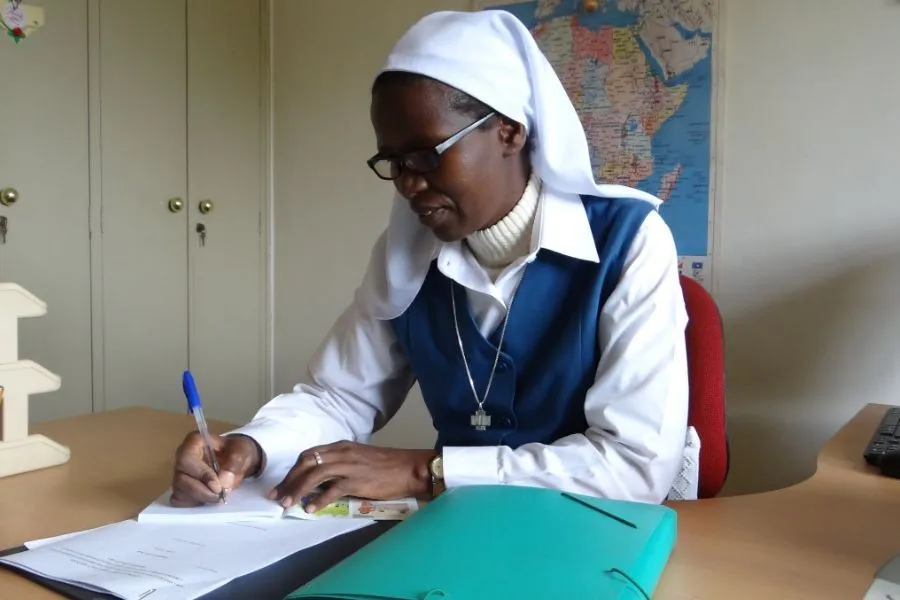 Sr Bernadette Lutaya, FSP Superior in Uganda. Credit: Daughters of St. Paul, Nairobi
Sr Bernadette Lutaya, FSP Superior in Uganda. Credit: Daughters of St. Paul, Nairobi
In Kampala, Uganda, Sr. Bernadette is accompanying 20 new FSP Aspirants through retreats, weekend programs and home visits, confident that the same number, or more, will one day proceed to Kenya and Uganda to start their Religious formation.
In Tanzania, FSP members have devised an ambitious plan to fully accompany the community’s four Aspirants who are looking forward to leaving for Nairobi in May next year to participate in their “Come and see” program.
“We keep them as close to us as possible. We send them random quizzes probing their general knowledge of our Congregation and invite them for get-togethers and talks on weekends. We have also been inviting them for a one-week stay with us during holidays,” Sr. Teresia told ACI Africa during the May 17 interview.
Agnes Aineah is a Kenyan journalist with a background in digital and newspaper reporting. She holds a Master of Arts in Digital Journalism from the Aga Khan University, Graduate School of Media and Communications and a Bachelor's Degree in Linguistics, Media and Communications from Kenya's Moi University. Agnes currently serves as a journalist for ACI Africa.



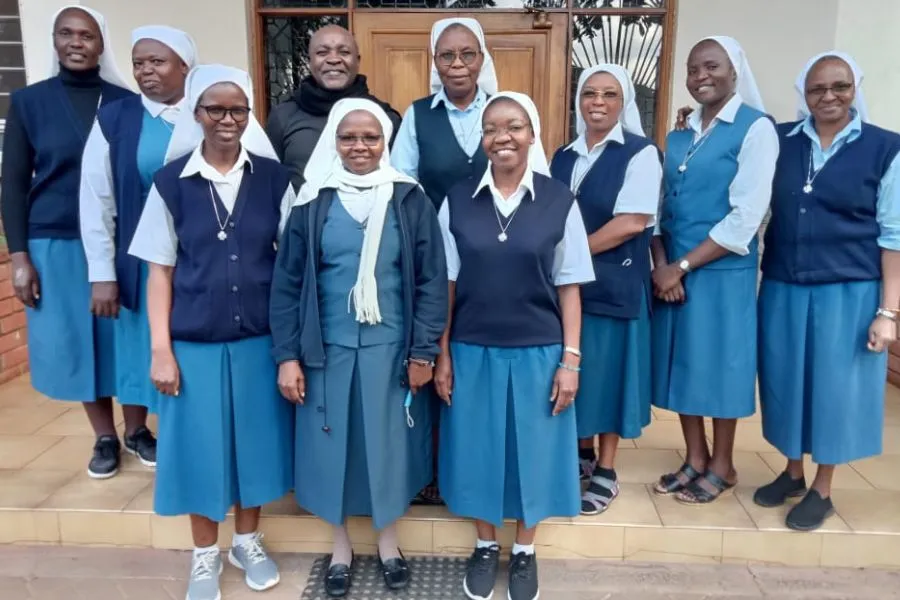
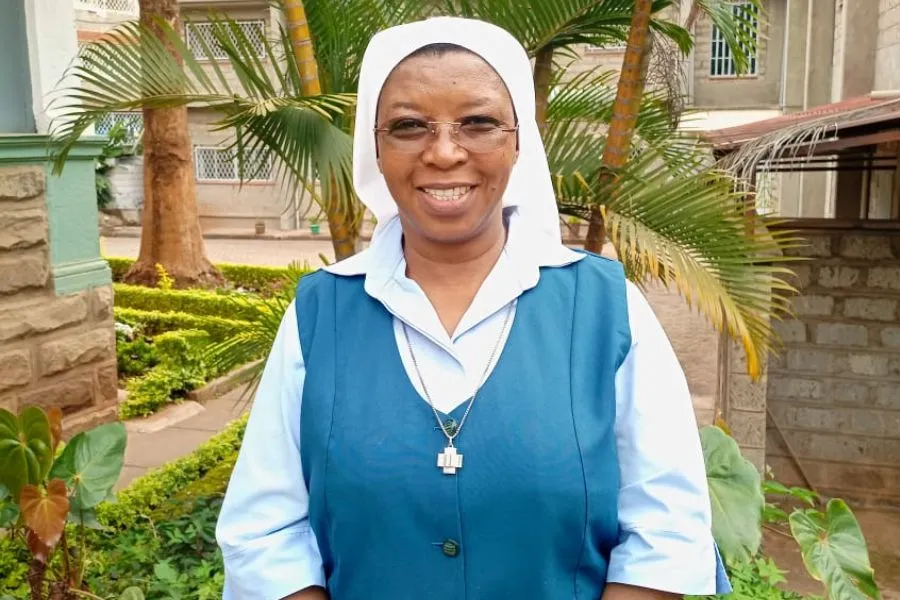 Sr Teresia Swai, FSP Superior in Tanzania. Credit: Daughters of St. Paul, Nairobi
Sr Teresia Swai, FSP Superior in Tanzania. Credit: Daughters of St. Paul, Nairobi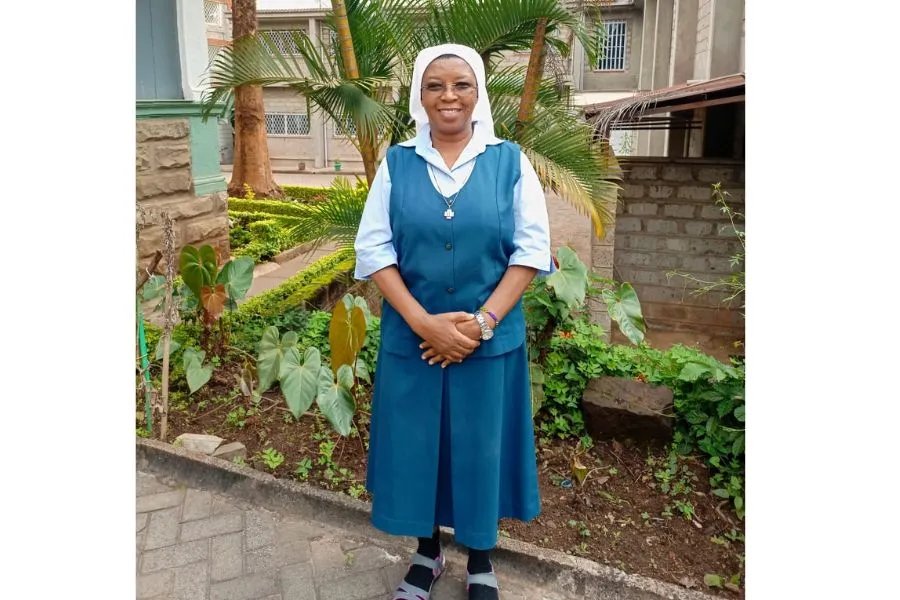 Sr Teresia Swai, FSP Superior in Tanzania. Credit: Daughters of St. Paul, Nairobi
Sr Teresia Swai, FSP Superior in Tanzania. Credit: Daughters of St. Paul, Nairobi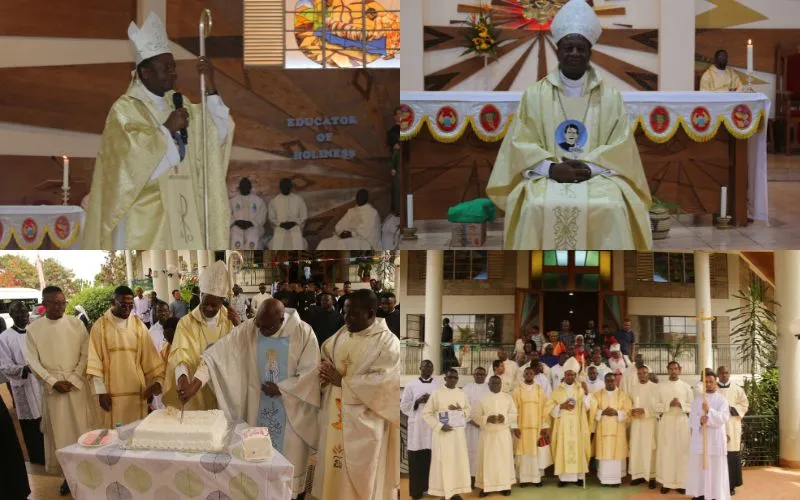
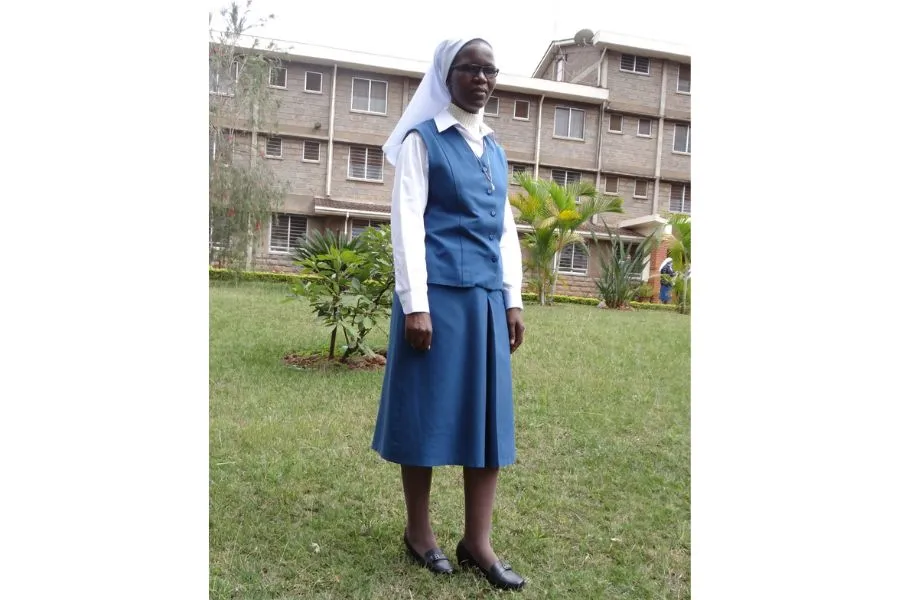 Sr Bernadette Lutaya, FSP Superior in Uganda. Credit: Daughters of St. Paul, Nairobi
Sr Bernadette Lutaya, FSP Superior in Uganda. Credit: Daughters of St. Paul, Nairobi Sr Rosemary Mwaiwa, Nairobi-based FSP Delegate Superior. Credit: Daughters of St. Paul, Nairobi
Sr Rosemary Mwaiwa, Nairobi-based FSP Delegate Superior. Credit: Daughters of St. Paul, Nairobi Sr Rosemary Mwaiwa, Nairobi-based FSP Delegate Superior. Credit: Daughters of St. Paul, Nairobi
Sr Rosemary Mwaiwa, Nairobi-based FSP Delegate Superior. Credit: Daughters of St. Paul, Nairobi Sr Rosemary Mwaiwa, Nairobi-based FSP Delegate Superior. Credit: Daughters of St. Paul, Nairobi
Sr Rosemary Mwaiwa, Nairobi-based FSP Delegate Superior. Credit: Daughters of St. Paul, Nairobi Sr Bernadette Lutaya, FSP Superior in Uganda. Credit: Daughters of St. Paul, Nairobi
Sr Bernadette Lutaya, FSP Superior in Uganda. Credit: Daughters of St. Paul, Nairobi


